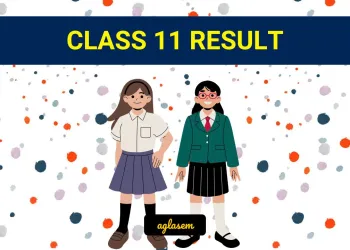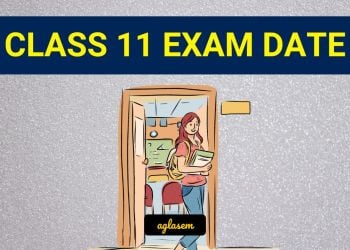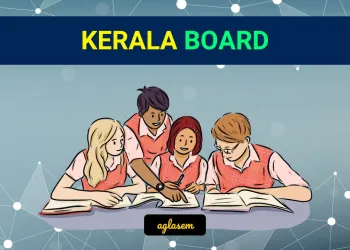Class 11 Business Studies Small Business – Get here the Notes for Class 11 Business Studies Small Business. Candidates who are ambitious to qualify the Class 11 with good score can check this article for Notes. This is possible only when you have the best CBSE Class 11 Business Studies study material and a smart preparation plan. To assist you with that, we are here with notes. Hope these notes will help you understand the important topics and remember the key points for exam point of view. Below we provided the Notes of Class 11 Business Studies for topic Small Business.
- Class: 11th
- Subject: Business Studies
- Topic: Small Business
- Resource: Notes
CBSE Notes Class 11 Business Studies Small Business
Candidates who are pursuing in Class 11 are advised to revise the notes from this post. With the help of Notes, candidates can plan their Strategy for particular weaker section of the subject and study hard. So, go ahead and check the Important Notes for CBSE Class 11 Business Studies Small Business from this article.
1. Small Business The definition of small business by the Government of India is based on the investment in Plant and Machinery, This approach is justified because we have scarce capital and abundant labour. ‘the small scale industries includes.
(i) Small scale industries
(ii) Ancillary industrial undertaking
(iii) Export-oriented units
(iv) Tiny units
(v) Small scale industries owned by women
(vi) Cottage industries
(vii) Khadi and village industries
(viii) Agro based industries
2. Nature of Small Scale Industries
(i) The business is organised by individuals in the private sector.
(ii) The use of family labour and locally available talent is made.
(iii) Simple equipments are used.
(iv) Capital investment is small, generally restricted to one crore.
(v) The use of indigenous technology.
3. Administrative Setup for the Small Scale
(i) Agro and Rural Industries
(a) The government of India created the Ministry of small scale industry and Agro and Rural Industries as the nodal ministry for formulation of policy.
(b) This ministry was divided into following two separate ministries in September 2001 .
- Ministry of Small Scale Industries
- Ministry of Agro and Rural Industries
(c) A part from the ministries state government also makes various promotional and development projects for SSI and then are executed.
4. Role of Small Business in India In developing countries like India there is a greater scope for small business enterprise. The following factors help in the scope of small business enterprises
(i) Limited resources
(ii) Flexibility of operation
(iii) Personal attention
(iv) Individual attitude
(v) Suppliers of large scale business
(vi) Social utility
5. Role of Small Business in Rural India
Small scale industries provide the following benefits in rural area.
(i) Employment
(ii) Improves economic condition
(iii) Promotion of artistic and creative sense
(iv) Rural development
(v) Mobilisation of local resources
6. Problems of Small Business in India
(i) Shortage of Fund Small enterprises have a chronic shortage of finance both for fixed and working capital requirement.
(ii) Shortage of Raw Materials and Power Most of the small factories have shortage of raw materials and other equipments because of limited means to buy in bulk and suppliers hesitate to provide credit policy (facility) to small business.
(iii) Old Techniques of Production and Lack of Latest Technical Knowledge Most of the small scale enterprise use old techniques of production because they cannot afford new technique.
(iv) Marketing Problems Small scale industries face many difficulties in marketing their products because of many reasons
(a) The cost of production is high.
(b) They cannot afford to have their own marketing organisation.
(c) Products of many small firms are not having uniform quality.
(v) Personal Problem Securing the right type of personal is a major problem of small business. A more important problem is the problem of proper training reasonable compensation etc.
(vi) In perfect Organisational Setup In most of the small enterprise the ownership and management functions are performed by the owner himself. Generally the owners may not have the necessary skill to manage the business also.
7. Government Assistance and Special Schemes for Industries in Rural Backward and Hilly Areas Some of the support measures and programmes meant for the promotion of small and rural industries are grouped in following two categories.
(i) Institutional Support
(a) National Bank for Agriculture and Rural Development (NABARD) The NABARD provides loans and advances to State Government for a period not exceeding 20 years to enable to State Government.
(b) The Rural Small Business Development Centre (RSBDC) It is set up by the World Association for small and medium enterprises and is sponsored by NABARD. It aims at providing management and technical support to current and prospective micro and small entrepreneurs in rural areas.
(c) National Small Industries Corporation (NSIC) Its main focus was on
• To supply indigenous and imported machines in easy instalments.
• To procure and supply imported raw materials.
• To export of products of SSI.
(d) Small Industries Development Bank of India (SIDBl) SlDBI was established in 1989 as a public corporation. Its main object is to promote. Finance and develop the small scale sector in India.
(e) The National Commission for Enterprises in the Unorganised Sector (NCEDS) The NCEUS was constituted in September 2004, with the following objectives
- TO improve productivity of small scale enterprises.
- To generate more employment opportunities.
(f) Rural and Women Entrepreneurship Development (RWED) This programme encourages rural people and women RWED provides the following
- Enhancing human and institutional capacities.
- Providing training for women entrepreneurs.
(g) World Association for Small and Medium Enterprises (WASME) Common schemes offered by WASMe are
- Integrated Rural Development Programme
- Prime Minister Rozgar Yojana
- Training of Rural Youth for self-employment
- Jawahar Rozgar Yojana
(h) Scheme of Fund for Regeneration of Traditional Industries (SFURTl) This fund is used
- To improve the technology of traditional units.
- To create sustained employment opportunities.
- To set up traditional industries in various parts of the country.
(i) The District Industries Centre (DIC) The DIC Programme was started on 1 May 1978 to provide assistance to small scale industries at the district level.
These centres provides all the promotional activities such as identification of suitable scheme preparation of feasibility report arranging for credit etc.
(ii) Incentives Some of the common incentives offered are below
(a) Land
(b) Power
(c) Water
(d) Sales Tax
(e) Octroi
(f) Raw materials
(g) Finance
(h) Industrial estates
(j) Tax holiday
Class 11 Key Points, Important Questions & Practice Papers
Hope these notes helped you in your schools exam preparation. Candidates can also check out the Key Points, Important Questions & Practice Papers for various Subjects for Class 11 in both Hindi and English language form the link below.
Class 11 NCERT Solutions
Candidates who are studying in Class 11 can also check Class 11 NCERT Solutions from here. This will help the candidates to know the solutions for all subjects covered in Class 11th. Candidates can click on the subject wise link to get the same. Class 11 Chapter-wise, detailed solutions to the questions of the NCERT textbooks are provided with the objective of helping students compare their answers with the sample answers.
Class 11 Mock Test / Practice
Mock test are the practice test or you can say the blue print of the main exam. Before appearing in the main examination, candidates must try mock test as it helps the students learn from their mistakes. With the help of Class 11 Mock Test / Practice, candidates can also get an idea about the pattern and marking scheme of that examination. For the sake of the candidates we are providing Class 11 Mock Test / Practice links below.
Class 11 Exemplar Questions
Exemplar Questions Class 11 is a very important resource for students preparing for the Examination. Here we have provided Exemplar Problems Solutions along with NCERT Exemplar Problems Class 11. Question from very important topics is covered by Exemplar Questions for Class 11.
CBSE Class 11 Business Studies Notes Maths Notes Accountancy Notes Sociology Notes
To get study material, exam alerts and news, join our Whatsapp Channel.




